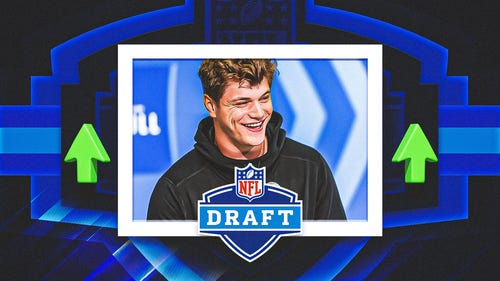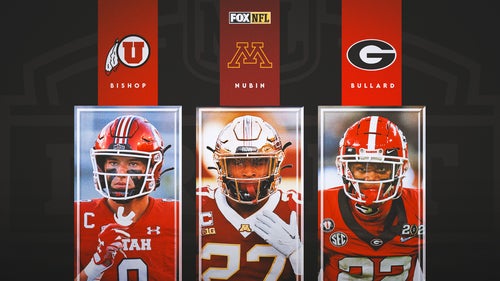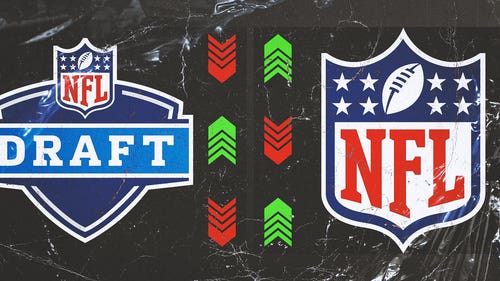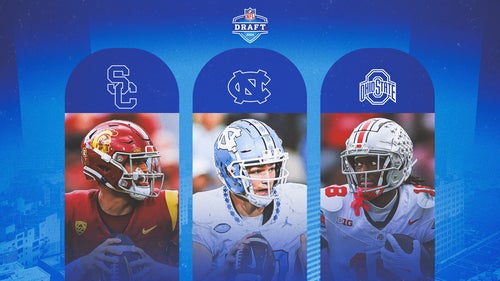
This summer, O.J. Simpson is up for parole. What are his chances?
As prison life goes, you could do worse than a stretch at the Lovelock Correctional Center. The inmates at Lovelock -- 1,680 when filled to capacity -- are fed fresh fruit and permitted to watch ESPN. Each 80-square-foot cell is shared by two men. The facility is designated “medium custody,” so the inmates’ relationship with guards tends to the cordial, and violence is rare. Located in the windswept midsection of Nevada, an hour and a half northeast of Reno off I-80, Lovelock sits on a vast tract of land, allowing for multiple prison yards and sports fields.
Lovelock’s most prominent inmate is number 1027820. Controversial as it may be, his record indicates no prior felonies. It lists him as standing 6' 2", 235 pounds, with a “medium” build and “dark” complexion. Brown eyes. Black hair, though in the official prison photo, it’s more salt than pepper and appears to be in a state of retreat. The same manifest lists a series of aliases that includes “Juice.”
O.J. Simpson turns 70 in July. Incarcerated since 2008, he is due to go before the Nevada parole board as early as this summer. Depending on the board's recommendation, 2017 might well be the year that perhaps the most famous inmate in America -- the subject of an award-winning documentary and an award-winning scripted show two decades after his Trial of the Century -- returns to society.
Before handicapping the chances of Simpson’s release, take a moment to reflect on how Simpson ended up here -- a journey wreathed in ironies. In 1995 he was acquitted of the murders of his ex-wife Nicole Brown and her friend Ron Goldman. Nerves from that verdict remain raw. And they were exposed further last year with the release of the transcendent documentary O.J.: Made in America, which argued to great effect that the jurors’ verdict was less about the merits of the case than it was about exacting karmic justice on the LAPD for years of perceived racial bigotry.
Two years later -- before a different jury and facing a lower burden of proof -- the families of Brown and Goldman won a wrongful-death civil suit against Simpson. He was ordered to pay $33.5 million in damages but has avoided that obligation, using federal and state laws that exclude certain assets from civil forfeiture, and moving to Florida, where, under the state's homestead exemption, forced sale of residences can be blocked. While Simpson’s NFL pension is estimated to pay him as much as $25,000 monthly, under the Employee Retirement Income Security Act (ERISA), it cannot be attached by creditors.
Even as Simpson had treated justice like an open-field tackler, deploying some slick maneuvers to elude its grasp, he would get pancaked less than a decade later. In 2007, Simpson and a team of cohorts confronted memorabilia collectors Alfred Beardsley and Bruce Fromong in a Las Vegas hotel room in an effort to reclaim numerous items of Simpson’s, including photos of his children. During the clumsy confrontation, one of the men with Simpson drew a gun, and in the end the crew left with as many as 800 collectibles, many having nothing to do with O.J.

Simpson would be charged with 12 counts, including conspiracy, burglary, robbery, kidnapping and assault with a deadly weapon. On Oct. 3, 2008 -- exactly 13 years to the day California jurors found Simpson not guilty of murder -- Nevada jurors found him guilty on all 12 counts. Judge Jackie Glass sentenced Simpson, then 61, to 33 years in prison, with a chance for parole after nine years.
Amid a series of unsuccessful appeals, Simpson has spent the last eight years in prison. At the start of his sentence he pledged to officials to be “the best prisoner [they’d] ever have.”By all accounts he has comported himself accordingly. On July 25, 2013, Simpson came before the parole board on five of his charges. In a 15-minute hearing he listed his positive contributions, which included mopping floors and disinfecting prison gym equipment. He took particular pride in his umpiring and coaching of prison-yard sports and his advising of younger inmates, saying he “kept a lot of trouble from happening” at Lovelock. His parole on those charges was granted.
Now Simpson will turn his attention to his upcoming parole hearing. According to David Smith of the Nevada parole board, that will likely take place over the summer. Typically, Nevada parole hearings occur about three months in advance of an inmate’s parole eligibility date. Given that Simpson is eligible for parole on Oct. 1, a hearing should occur around July 1. If granted parole, he could be out of prison by the fall. If denied, he could remain in prison until 2022, when he’ll be 75.

For Simpson to get a favorable ruling -- for the Juice to be loosed, as it were -- he’ll need recommendations from at least four of the seven commissioners. That the parole board in Nevada grants release in roughly half the cases it hears involving male prisoners underscores the maybe/maybe not nature of the process. “I’ve seen [inmates] with no issues turned down. I’ve seen others where I’ve thought ‘no way’ get to go home early,” says one Department of Corrections employee not authorized to speak for attribution. “They make up their own minds.”
Yes and no. The decision to grant parole is, by definition, discretionary. But it is a decision that Thomas Patton, a former chairman of the parole board in Nevada, stresses is conducted through a “very comprehensive review,” weighing 11 largely objective factors. Between -1 and +2 points are allocated for each criterion. Inmates exceeding five points are classified as a “medium” or “high” risk and are unlikely to be granted parole. Score fewer than five points, and odds swing the other way. In 2013, Simpson scored three points, falling into the “low risk” category. He seems likely to do well again in 2017. Here are the 11 factors and how they would seem to cut for Simpson.
• Age at the time of first arrest: Under Nevada law, inmates ages 24 or older at the time of their first arrest are assigned 0 points by the parole board. Criminology data indicate that the younger the age at first arrest, the better the chances of recidivism. Simpson was 46 when first arrested. 0 points
• Prior probation or parole revocations: An inmate who has never experienced revocation of probation or parole receives zero points. Simpson has never experienced any revocation. 0 points
• Employment history immediately before arrest: A full-time status at the time of the crime works in an inmate's favor, earning zero points. The logic: An inmate more likely to obtain gainful employment -- reentering society with proven job skills and an established record -- will have more to lose by committing another crime. For parole in Nevada, retirement is treated as full-time employment. Simpson was retired at the time of the robbery. 0 points
• Offense leading to current or prior convictions; Under Nevada law two points are allocated for property offense convictions, a category that includes robbery and burglary. Data indicate that inmates who have committed property offenses commit future offenses at a rate disproportional to other crimes. Simpson was convicted of robbery and burglary. 2 points
• History of drug or alcohol abuse: An inmate with a history of abusing alcohol or drugs is, statistically, more likely to encounter legal problems after release. Simpson admits he drank to excess on the night of the hotel robbery, but he did not drive a car that evening and has no previous charges for drug or alcohol offenses. 0 points or 1 point
• Gender: Owing to social science data indicating that men are more likely than women to reoffend, males receive 1 point while females receive 0. 1 point
• Current age: Older inmates are less likely to commit crimes than their younger counterparts. Nevada law reflects this, allotting -1 points to inmates 41 or older at the time of the hearing. Simpson turns 70 on July 9. -1 point
• Active gang membership: As one would expect, suspected street or prison gang memberships is viewed with disfavor. Simpson has avoided any associations with gangs while incarcerated. 0 points
• Completed education, vocational or treatment program during prison term: Inmates improving themselves by furthering their education, vocation or treatment while incarcerated are rewarded when up for parole. During his 2013 parole hearing, Simpson indicated that he took part in various educational programming and was planning to do more. -1 point or 0 points
• Disciplinary write-ups: Inmates cited for disciplinary violations are considered worse candidates for parole than are those who stay out of trouble. As of this month, Simpson had no disciplinary write-ups indicated on his online profile with the Nevada Department of Correction. That he has counseled other inmates and even served as commissioner of Lovelock’s softball league will likely count in his favor as well. -1 point
• Custody level: In Nevada inmates in minimum custody receive -1 point, inmates in medium custody receive 0 points and those in maximum custody receive 2 points. 0 points
Final Tally: 0 to 2 points
Indeed, Las Vegas criminal defense attorney Daniel Hill, who is representing antigovernment protest leader Ammon Bundy, predicts Simpson, who is likely to represent himself before the board, will fare well. “He’s the kind of person who gets paroled,” says Hill. “He has done a significant amount of time and, by all accounts, hasn’t caused any problems.” Hill also notes that paroling Simpson would be consistent with the underlying principles of “encouraging low-key, peaceful behavior within a penitentiary” -- something that Simpson appears to have maintained.
• FROM THE VAULT (June 1994): Fatal attraction
Parole would only serve as conditional release from prison. Simpson would still need to meet regularly with a parole officer, obtain permission to travel out of state and submit to periodic searches of his person, car and home. If he violated any of the terms of parole, he could be sent back to prison, though not necessarily Lovelock.
He also still faces his civil liability. While Simpson is unlikely to come anywhere close to replicating his earning power from the early 1990s, he also owes tens of millions to the Goldman and Brown families. Little of that will ever be recouped, but both families are likely to pursue their debt.
Finally, there’s the matter of his reintegration into society. By his own admission, before the summer of 1994, Simpson was ferociously social and status conscious. Made in America argued compellingly that after his acquittal, the ostracism visited upon Simpson -- expelled from his country club; transformed into a punch line -- was severe. Now, at 70, still reviled by so many, still the enduring source of so much public fascination, can he fashion any kind of a normal life?
All of which is to say: Indications are strong that this will be the year O.J. Simpson will be released from prison. As for just how free he will be, that’s another matter entirely.
This article originally appeared on
















































































































































